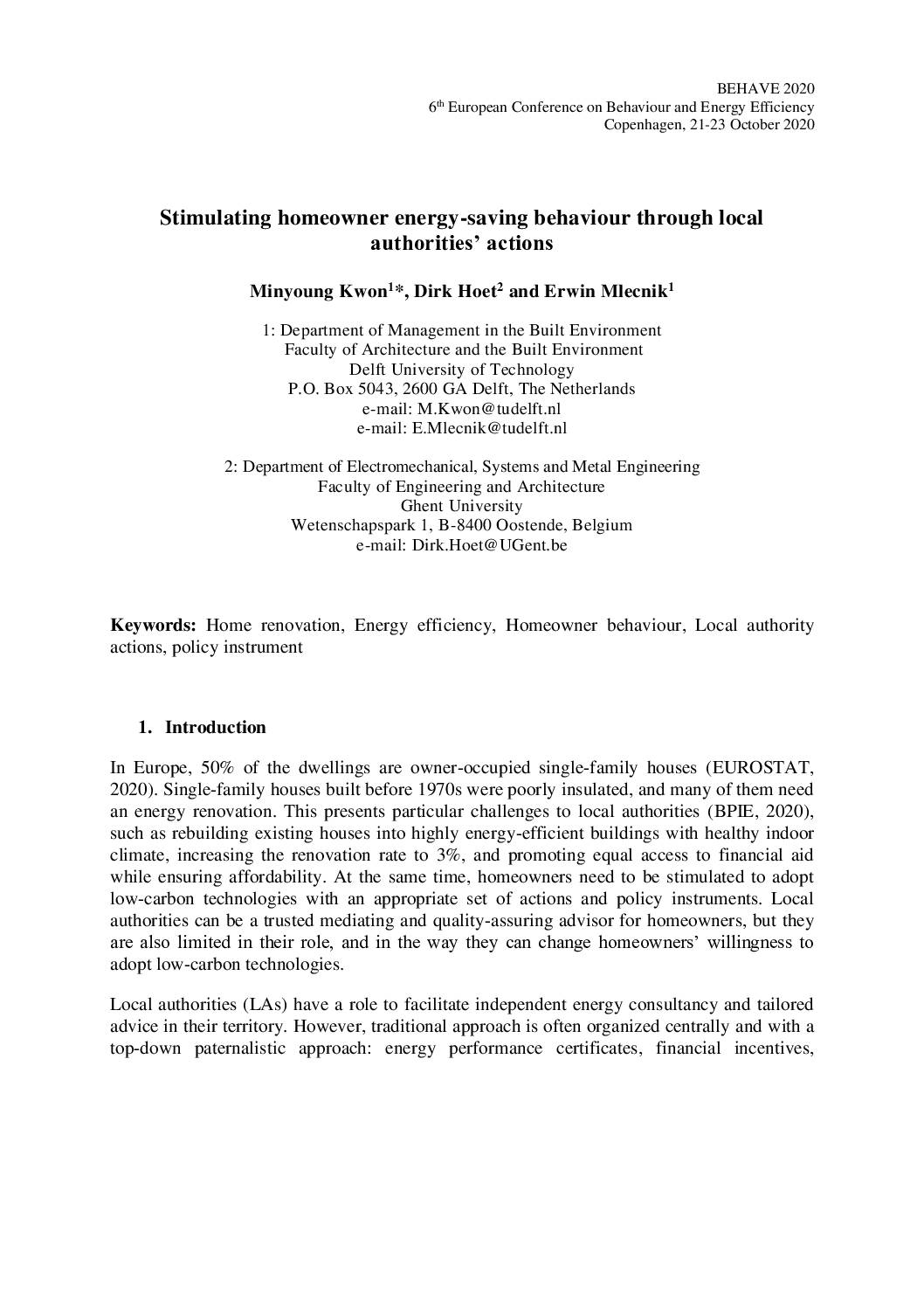In Europe, 50% of the dwellings are owner-occupied single-family houses. Single-family houses built before 1970s were poorly insulated, and many of them need an energy renovation. This presents particular challenges to local authorities, such as rebuilding existing houses into highly energy-efficient buildings with healthy indoor climate, increasing the renovation rate to 3%, and promoting equal access to financial aid while ensuring affordability. At the same time, homeowners need to be stimulated to adopt low-carbon technologies with an appropriate set of actions and policy instruments. Local authorities can be a trusted mediating and quality-assuring advisor for homeowners, but they are also limited in their role, and in the way they can change homeowners’ willingness to adopt low-carbon technologies.
Local authorities (LAs) have a role to facilitate independent energy consultancy and tailored advice in their territory. However, traditional approach is often organized centrally and with a top-down paternalistic approach: energy performance certificates, financial incentives, subsidies, tax credits, etc. Involvement of third parties is often limited to public procurement, with little cooperation. In contrast, many studies emphasized the new role or varying degrees of engagement of local authorities in energy efficiency measures. Shaw (2012) stated that a key feature of innovative local authority actions is to collaborate with other communities and to apply a partnership approach.
This paper introduces and evaluates innovative local policy instruments to spur the adoption of renovation measures by homeowners. The paper investigates how seven local authorities from UK, Belgium, France, and the Netherlands dealt with the development of both virtual (online web modules) and physical consultancy (pop-ups) in target areas. The evaluation results recommend how local authorities can develop a strategic approach for civic engagement.
Share this

Sectors: Buildings, Cross cutting
Country / Region: Europe
Tags: climate friendly government subsidies, energy, fiscal and financial incentives, incentives, partnerships, policy instruments for mitigation, program evaluations, subsidies, targets, taxes and leviesIn 1 user collection: Session 1b: Hard-to-reach energy users in residential and non-residential sectors and financing
Knowledge Object: Publication / Report
Publishing year: 2020
Author: Minyoung Kwon, Dirk Hoet, Erwin Mlecnik
Content:

